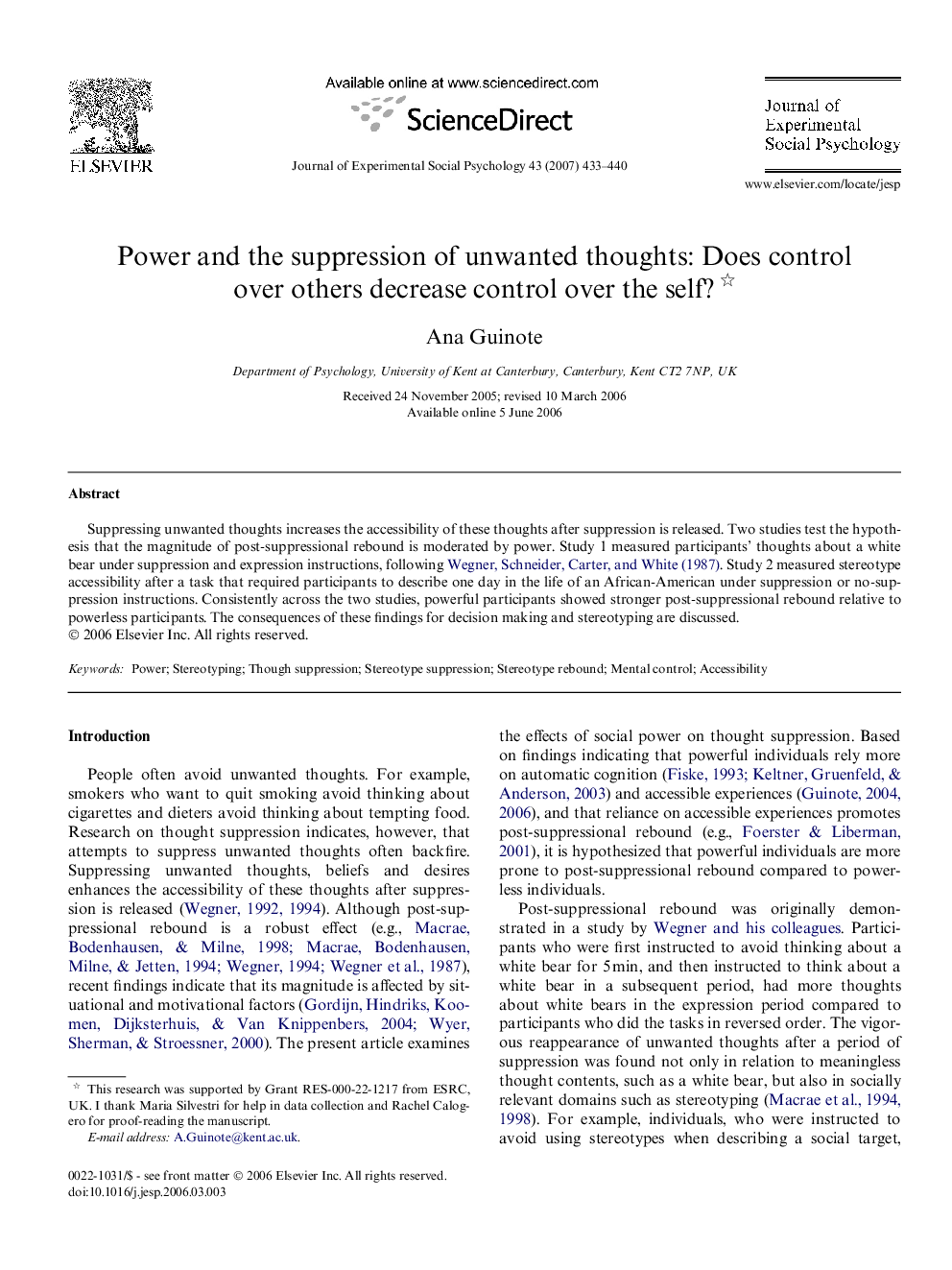| Article ID | Journal | Published Year | Pages | File Type |
|---|---|---|---|---|
| 948911 | Journal of Experimental Social Psychology | 2007 | 8 Pages |
Suppressing unwanted thoughts increases the accessibility of these thoughts after suppression is released. Two studies test the hypothesis that the magnitude of post-suppressional rebound is moderated by power. Study 1 measured participants’ thoughts about a white bear under suppression and expression instructions, following Wegner, Schneider, Carter, and White (1987). Study 2 measured stereotype accessibility after a task that required participants to describe one day in the life of an African-American under suppression or no-suppression instructions. Consistently across the two studies, powerful participants showed stronger post-suppressional rebound relative to powerless participants. The consequences of these findings for decision making and stereotyping are discussed.
